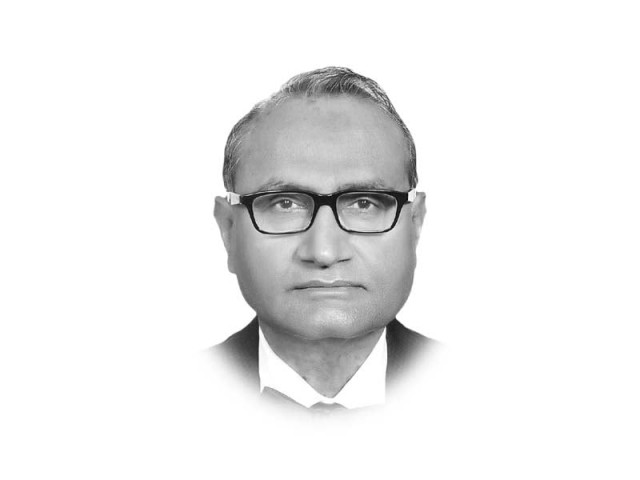GDP plus?
The new-found idea is useful if limited to testing the reliability of overall GDP

pervez.tahir@tribune.com.pk
What is new is the suggestion that consumption should be the basis of estimation and its acceptance by the government. When you go to the supermarket or a restaurant, see the housing ads or commercials of mass consumption, you feel that the economy may not be doing that bad. You develop the perception that the official numbers do not reflect this. Our dynamic finance minister has been bought into the idea. He wasted no time in asking the World Bank to assist in the re-estimation. Now the World Bank has no special expertise in national accounts.

The exercise will create some consulting opportunities. For the time being, it will also reduce fiscal deficit and debt as percentage of GDP, besides putting Pakistan higher on the league tables related to the size of the economy. Once the numbers are worked backwards, the direction of change will remain the same. As productivity differs across countries, league table comparisons of the size of GDP do not make sense. This requires updated input-output tables. The last effort in this case was made by the PBS in 1990-91.
What will be the value added to the national accounts is hard to see. Information should preferably be collected through censuses, such as the census of manufacturing industries and surveys. Special studies are a poor substitute. However, some surveys lead to overestimation of GDP. For instance, the survey conducted for small-scale manufacturing showed a growth rate of 8.2 per cent at the time of rebasing at 2005-06. As this figure has been repeated every year since rebasing, it contributes to the overestimation of GDP in years of low overall growth. This is, however, an argument for increased frequency of the survey, not its replacement. The new population census blocks contain a wealth of information, especially housing units. Investment needs to be made in adopting this frame for the national accounts.
The PBS follows the latest version of the internationally accepted System of National Accounts (SNA 2008). The way to incorporate changes is not piecemeal or adhoc adoption, but a regular change of base. This is necessary to maintain the integrity and credibility of data. In its 70 years existence, Pakistan has seen only five base changes, initially due to capacity constraints but later due to budgetary constraints. Best practice requires an interval of five years. The present base of 2005-06 was approved by the caretaker setup in April 2013. The next base was proposed for 2014-15. One does not see much progress here.
The new-found idea is useful if limited to testing the reliability of overall GDP. But this is all that is useful about it. It breaks down at sub-sectoral level due to lack of information. Perhaps the way forward is to work towards bottom-up estimation, beginning with the districts, going up to the provinces and finally the national level. This will make sense of keeping the census and statistics as subjects of the Council of Common Interests.
Published in The Express Tribune, May 5th, 2017.
Like Opinion & Editorial on Facebook, follow @ETOpEd on Twitter to receive all updates on all our daily pieces.













COMMENTS
Comments are moderated and generally will be posted if they are on-topic and not abusive.
For more information, please see our Comments FAQ